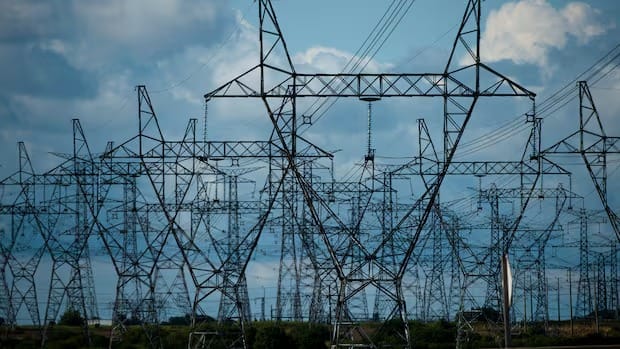EVs and AI will send Ontario's electricity demand soaring, system operator says
At least 16 new data centres forecast to be operational by 2035

Demand for electricity in Ontario is projected to rise by 75 percent over the next couple of decades, significantly higher than the forecasts made just a year ago, partly due to a sudden influx of data centers supporting artificial intelligence, according to the system operator on Wednesday.
Electricity demand has remained relatively flat for the past 20 years, but it is now increasing and shows no signs of stabilizing, officials from the Independent Electricity System Operator (IESO) stated in a briefing. Last year, they had anticipated a 60 percent increase in demand by 2050.
A substantial portion of this new demand will stem from industrial sectors, including the three electric vehicle battery plants currently being developed, along with their associated supply chain manufacturing. Industrial demand is expected to rise by 58 percent by 2035, which is comparable to adding a city the size of Toronto to the electrical grid, the IESO reported.
Additionally, demand is surging from data centers that require significantly more energy to support artificial intelligence operations, the IESO indicated.
"Previously, the data centers existed ... but the energy use that data centers now require, because of these AI functionalities, is infinitely higher than it was previously," said Chuck Farmer, the IESO's vice-president of planning, conservation, and resource adequacy. "I'll be frank, we have been — as many system operators have been — caught a little off guard by how quickly this has happened."
By 2035, at least 16 large data centers are expected to be operational, representing 13 percent of the new electricity demand.
Energy and Electrification Minister Stephen Lecce noted that he is focused on ensuring the system remains reliable for these centers and all other forms of economic growth.
"This is a significant opportunity, but it creates pressure on the grid," he said.
"We don't deter investment or jobs or innovation that could take place in Ontario. AI and these data centers are vital for growing our economy, diversifying it, and creating value-added jobs. So we understand that there's much more demand for energy on the system, but we have a plan."
The IESO confirmed that the province has sufficient power for the remainder of this decade, and Lecce indicated he will soon unveil his "vision" for meeting future energy demands with reliable, affordable, and clean energy.
Betting on Nuclear
Ontario is already planning to increase its output from nuclear generation by extending the life of the Pickering nuclear plant by two years, while also considering a larger refurbishment to maximize its lifespan. Additionally, plans are in place to construct a new large-scale nuclear plant on the site of Bruce Power's current generating station, as well as to build four small modular reactors.
Moreover, the IESO is developing a new energy efficiency framework to manage demand and conserve energy, and the province is procuring thousands of additional megawatts of electricity generation. Lecce is looking into a mix of natural gas, hydroelectric, renewables, nuclear, and biomass for future energy sources.
Green Party Leader Mike Schreiner expressed concern that the government may rely even more heavily on natural gas to address the supply gap created by the increased demand for electricity.
"My concern is the government's going to choose an expensive, dirty approach, which is ramping up gas plants — which is what they've been doing," he said. "(It) makes absolutely no sense when wind, solar, battery storage, and hydro power are far cheaper, much cleaner, and can be deployed much faster."
In 2021, the electricity system was 94 percent emissions-free, but that figure has dropped to 87 percent as the province has turned to more natural gas generation.
Since assuming the energy portfolio this summer, Lecce has been unapologetic about the reliance on natural gas to maintain reliability in the electricity system.
"Natural gas is an insurance policy that is important for Ontario, particularly during peak periods where we need that energy that we just can't deliver to industry and people," he said.
"But the truth is, Ontario has one of the cleanest grids on Earth."





